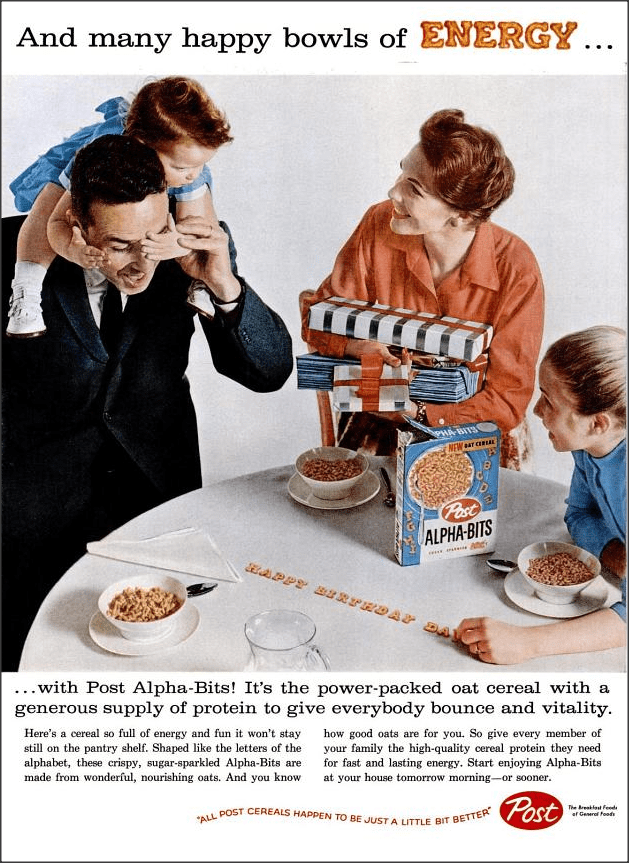Why Americans may be dependent on processed cereals

- Many Americans are skipping the cereal aisle because the products are processed and heavily sugared.
- But cereals are also fortified with synthetic vitamins and minerals, making them an important source of micronutrients in the average American diet.
- If Americans were to stop eating fortified cereals, they would need to make up the nutritional difference elsewhere (preferably with whole fruits and veg).
Many American consumers are skipping the cereal aisle in grocery stores, viewing its contents as basically boxed candy. That’s understandable. A lot of cereals are chock-full of added sugars and refined grains, which can contribute to obesity and metabolic dysfunction. Ironically, at the same time, there may be no aisle more essential to the Americans’ health. That’s because cereals have become the de facto source for Americans’ micronutrients.
For decades, cereal manufacturers have fortified their products with synthetic vitamins and minerals, and now, we’re kind of reliant on them.
A 2011 study published in The Journal of Nutrition found that without fortified foods, 100% of Americans would fail to meet the estimated average requirement for vitamin D, 74% for vitamin A, 46% for vitamin C, 93% for vitamin E, 51% for thiamin, 22% for vitamin B6, and 88% for folate.
Not meeting these requirements wouldn’t necessarily lead to wide-scale nutritional deficiencies — Americans wouldn’t suddenly develop scurvy en masse. But it would likely lead to inadequacies that could covertly worsen Americans’ already notoriously poor health.

According to Victoria Drake at Oregon State University’s Micronutrient Information Center:
“Micronutrient inadequacies could elicit symptoms of general fatigue, reduced ability to fight infections, or impaired cognitive function (i.e., attention [concentration and focus], memory, and mood). Micronutrient inadequacies may also have important implications for long-term health and increase one’s risk for chronic diseases like cancer, cardiovascular disease, type 2 diabetes mellitus, osteoporosis, and age-related eye disease.”
A more recent analysis of data on more than 30,000 American adults found that people who skipped breakfast, along with the fortified foods that often accompany the meal, were significantly more likely not to meet the bottom threshold of requirements for various vitamins and minerals. Additionally, they were more likely to consume more added sugars, carbohydrates, and fats largely because they upped their snacking throughout the day.
In her 2015 book, Vitamania, journalist Catherine Price worried what might happen if breakfast foods weren’t nutritionally fortified. “If food companies didn’t voluntarily do so, the government might have to require it, to make sure that we don’t accidentally eat ourselves into nutritional deficiency,” she wrote.
We’ve created an odd symbiotic relationship, in which companies depend on us to buy their products, and we depend on the synthetic vitamins in these products to fulfill our nutritional needs.
Catherine Price
But, she reasoned, there’s little chance that the status quo will change:
“If processed products were not enriched with synthetic vitamins, the nutritional emptiness of their raw ingredients would mean that we’d have to eat (or take) something else to meet our micronutrient requirements … We’ve created an odd symbiotic relationship, in which companies depend on us to buy their products, and we depend on the synthetic vitamins in these products to fulfill our nutritional needs.”
We can’t be sure exactly what would happen to America’s collective health without processed, fortified cereals. The effects would likely take years to manifest, and might not be that bad. A 2019 systematic review exploring the health effects of eating fortified cereals for children and adolescents found only “marginal” benefits. Moreover, it’s possible that Americans might make up the nutritional deficit elsewhere, perhaps by swallowing more nutritional supplements, or finally eating the whole fruits and vegetables most of us have been ignoring for decades.
This article was originally published on RealClearScience. It was written by Ross Pomeroy, a regular contributor to Big Think.





